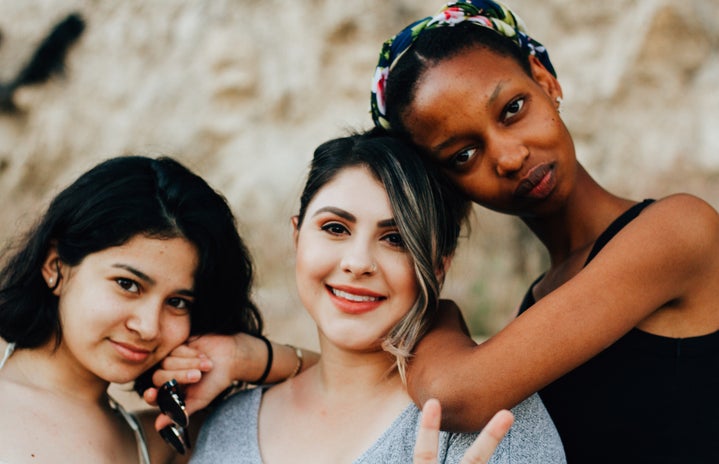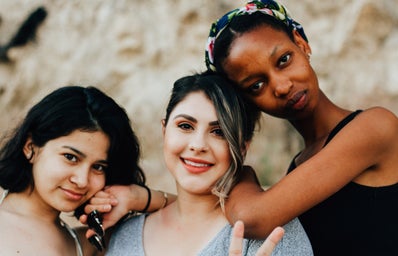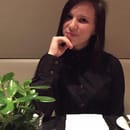Warning: This article contains information about physical and emotional abuse that some readers may find upsetting.
“I see where your mum is coming from”.
S’s* words rang in my ears. What my ‘best friend’ said consolidated how I viewed myself after everything my mother had made me believe over the years. I believed I made everybody’s lives miserable and that I was not and never would be good enough.
This was the conclusion of another one of our tri-quarterly arguments that would result in our eight year on-and-off friendship officially coming to an end. I blocked his number, his social media and went to his house to pick up my belongings that he’d claimed over the summer months. He didn’t even come to the door himself to give me my things or talk face-to-face like I was hoping he would, like grown adults should. I didn’t want to fall out with him. Why would I? All I’ve ever wanted was an easy life.
The end of our friendship confirmed a lot of things for me.
Firstly, he brought the worst out of me and it wasn’t good for my mental health. We constantly argued, I said things I regret and he encouraged my bad habits.
But, when we got along, I was reminded of my free-spirited life back home; we went on adventures across the countryside, window-shopped in town because we couldn’t afford to buy anything and just spent time together causing mischief, building dens in plots of forest or exploring abandoned buildings.
When we got along, life in Lincolnshire seemed a lot simpler than it really was and I always looked back on it nostalgically. My friendship with S was a tie to Lincolnshire that made everything rose-tinted. And then I learned about trauma bonding.
Trauma bonding does what it says on the tin— it’s a bond to another person, usually toxic, formed through intense, and often traumatic, emotional experiences. When I learned about trauma bonding, I’d already cut off our friendship but I didn’t have a name for how I was feeling. I knew I didn’t want to be friends anymore and, with the residual strength I found in cutting off my mother a month and a half previously, I felt strong enough to make this the last straw.
But on the other hand — and this is when I realised that our friendship was definitely a trauma bond— we’d been through so much together over the last eight years that I felt guilty. I didn’t want to lose our friendship because when it was good, it was really good, and my brain automatically tried to rationalise the bad times. Granted, every relationship has peaks and troughs, but the stability of our friendship was more like being at the top of Mount Everest when it was good and being trapped at the bottom of the Grand Canyon when it was bad. I needed to break the cycle permanently this time.
In hindsight, I’m not surprised I had a friendship like this. People who have experienced child abuse often form these turbulent relationships because chaos is natural to them. I didn’t ask for the chaotic friendship but I couldn’t recognise it because that’s all I’d ever known. And considering the fact that our friendship began at the same time as my mum abusing me at home, it’s no wonder I couldn’t recognise the red flags until now. All the red flags… just looked like flags.
The worst part of trauma bonding is that while I’m absolutely furious about what he’s put me through, I still want to see him do well. In the past year or two, I’d helped S organise his return to education, calculating whether he could afford to live with me in Manchester and looking at university courses for him. I’d encouraged him to follow in my footsteps as I knew the amazing opportunities Manchester had to offer.
Leaving Lincolnshire for Manchester changed me on a fundamental level and I wanted my best friend in the whole world to share that success. But, my efforts were thrown back in my face. He didn’t seem to care that all this hard work was done for him.
I wanted to share this story because there are so many people out there experiencing toxic friendships who may not even know it. Our society has normalised arguments instead of encouraging honest, calm discussions about disagreements. If you find that you constantly argue with your friends, if they call you names or use things that they know are hurtful against you, ask yourself, with brutal honesty, why do you allow yourself to be treated like that?
I’m 23 years old next month and I’ve realised that I allowed myself to be emotionally and physically abused by two people who are meant to be the most important figures in a young person’s life; their mother and their best friend. I wasted eight years of my life when I could have formed much healthier, longstanding friendships. I could have looked for guidance from other parents instead of taking everything on by myself. I could have done more much earlier, and while you have the chance, you should do that, too. In The Art of Letting Go: Part I, I said that love and support come in all shapes and sizes, and I’ve found mine in Manchester and in my partner and their family.
If you have been affected by anything in this article, please contact your GP for professional advice on how to overcome mental health difficulties. I also recommend checking out The Rewired Soul on YouTube, whose mental health videos have often helped me stay on the right track.
*Names have been changed to protect the identities of the people discussed within this article.


